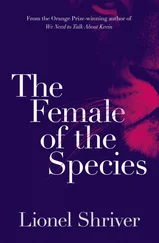Of course, it might have been the other way around—perhaps I had disappeared and they, not I, were still present. Perhaps I couldn’t see them because I was gone, nonexistent, devoured, hidden in the bowels of my own crab lice, which could find no nest in their cool cleanliness. Or I was hidden in the bowels of my mother…
Perhaps there had, in fact, been a harbinger of this scandalous turn of events. I recalled my lasting alarm over an incident the previous winter. Very early one morning I was sitting in a bus from A. to M., one of the first on that route; it was packed with workers heading to the early shift, and the only free seat was the one next to me. It went unclaimed, though people were even standing in the aisle between the seats. It was neither chance nor delusion; quite clearly they were refusing to sit next to me. Indeed, I looked as though the sickness were already upon me, as though I already were a sickness; yet I knew it hadn’t quite seized me, I expected it that coming summer, though I couldn’t yet guess its symptoms. Now I interpreted things as follows: on a weekend trip during which everything in my life had gotten mixed up and I hadn’t slept for two or three nights, I’d been transformed into a hollow-eyed, feverishly glowing ruin; staggering around, I paraded a dull, glimmering fog that emanated from my face’s pale gray skin, a foul-smelling fog that rose from my mouth’s burning cavity and from my unwashed armpits. — On the seat just in front of me sat a girl, a young woman, separated from me by the seat back that rose in front of my face and smelled of its green plastic upholstery; the young woman had mounted the bus just before me, gazing about sleepily, infinitely lovely. Her characteristic feature, I’d noticed immediately, was the sharp kink in her nose, bent slightly to the left; either some terrible accident had broken its bridge, or it was due to her harelip, surgically repaired and almost completely smoothed away, a very slight irregularity, but apparently reason enough for the younger man next to her to move as far away as possible. That young man, casually dressed and clearly smelling much less foul than I, worked as a so-called dispatcher in a department of my factory that supervised the tool shop, so that broadly speaking he was one of my superiors; now, fortunately, it seemed he hadn’t noticed or hadn’t recognized me. His name was exactly the same as mine, which often made people mistake him for me, or rather me for him; the girl, who also worked at our factory, though not in the pressing shop, spoke to him a few times, very quiet words I couldn’t understand—she addressed him familiarly by his first name, that much I understood; of all the words she said, I heard only the softly lisped name that was mine, and that sounded wondrous to me coming from her lips—but he gave no reply, hardly deigning to look at her. I was firmly resolved that at the next opportunity, on some pretext, I’d smash his nose with a blow of my fist—this intention, albeit as a purely verbal offense, really did play a role in my dismissal from the factory six months later. — She seemed to have abandoned the attempt to talk to him, and leaned her head back against the seat; her long dark hair, in several smooth spills, hung down over the upholstery toward me, and after a sharp curve I noticed that my hand, feeling the need to brace me, had grabbed the seat and lingered there. My hand had come to rest just half an inch beside that hanging hair, resting there without touching it at all. I glanced around the bus for fear that someone might have noticed the hand’s telltale position. I needed to move it just half an inch to touch the girl’s hair, and probably she wouldn’t even feel it. I didn’t move the hand; the hand didn’t move. Spellbound and despairing, I froze in the conviction that it could only be a touch that, on a normal person’s skin, would elicit at most a trifling tickle, at most the suspicion of a tickle, so light and delicate… really, no normal person would mind refraining from such a touch; really, such a touch wouldn’t even cross their mind. My heart began to flutter, the idea needled me down into my lower extremities, an uncontrollable nervousness, and as a result… I thought I saw my hand twitch, the crippling urge to instantly hurdle that one half inch pulsing unmistakably in my fingers… as a result my entire arm turned to stone and, despite all the willpower I could muster, remained immobile… as a result I had no choice but to grasp without hesitation, to blindly grab those strands of hair that would jerk the young woman’s head around in my direction, so that our gazes would suddenly lock, suddenly my gaze would strike in the midst of her face’s misfortune, suddenly the name that must linger behind her brow would be spoken to its true, sole bearer… or I’d find the hair was a wig, I guessed it, I saw it, this immobile hand would tear at a sham, in my hand this hair would transform into synthetics, these frozen artificial fingers would touch only the cold, unfeeling tresses of a perfectly manufactured wig… my hand, gone pale, in a white frenzy, as if assuming the fanatical hue of my sleep-deprived face, did not move in the slightest. There was a thought in this hand that wounded me deeply; in this hand was the terrible suspicion that the darkly gleaming, soft, fragrant hair before me, however clearly I saw it, did not really exist.
My losses accumulated: it seemed I’d even lost my name; yes, I no longer knew who I was, my name was the property of a strange personage, that alone put it in the presence of the females, and they suspected nothing. My name was lost, as all that flowing, rustling hair was lost to me… it was lost because I was forbidden to touch it, ah, it was beyond saving. — As we approached the town of M., the bus drove past sprawling garbage dumps, veritable pyramids of trash looming from a landscape of old, filled-in strip mines; dump trucks, engines howling with the effort, scaled the mountainsides of trash until they finally found a place to disgorge themselves, giving one last ghastly howl as they tipped the loads from their orange-red bellies. Eddies of wind snatched at the cargo and whirled it upward… and I had the sense that prodigious quantities of hair were being hurled upon the heaps, I imagined that colossal bales of matted hair in all different hues were being exposed to the weather; oh, I saw hair smoking upon the plain, cloudy skeins of it drifting toward the last bare trees, where they snagged in crippled winter branches to flutter like black scraps of flags, flags to mourn the murderous traditions of my homeland. Trembling with horror, I got off the bus when it stopped at a path that led to a village. I was suddenly nauseous and cold with sweat; with rending intensity I was beset by a thought that put me in a panic, a thought inexplicable to me, yet of the irrevocable veracity one experiences only in the grip of an obsessive suspicion when the whole world around seems to turn into evidence confirming it. It all came back to me: almost exactly a year before, when, out of work in M., I spent several months living on my savings and struggling to use the jobless phase for a writing project—envisioned as a romantic novella with a tragic ending, an experiment meant for myself alone, since I knew I’d never let myself share a manuscript with such an embarrassing subject—I was surprised by a summons from the Workforce Steering Office in the district capital, where I was asked to explain why I hadn’t held a regular job for some time. I stammered, I couldn’t come up with a convincing excuse; the threatening undertone in the voice of my hefty female interrogator disconcerted and exposed me before I’d even opened my mouth, and all explanations seemed pointless except for the one that would show my true colors. The woman’s eyes, fixed upon me, took on a shimmer of mockery and outrage as I began a laborious account of the literary proclivities that had governed me since my youth, and which I felt it was my mission in life to pursue… — Oh, she said, what on earth do you plan to write…?—a question that immediately silenced me… You don’t even have a high-school diploma, no… indeed, she said, you didn’t even finish tenth grade. But we’ve offered you the chance to learn a very decent profession… which you’ve already given up. Your sense of gratitude toward our state and society leaves much to be desired; in fact, it’s practically criminal. You want to be an artist… what on earth do you plan to write… a writer, but you shy away from facing real life. That’s where I have an excellent suggestion for you. As I’m sure you know, the sanitation department in M. is dealing with a considerable shortage of manpower. Trash collection, that’s a crucial field of work—aren’t they constantly looking for young people? You’re young and pretty sturdy. You don’t want to work in your profession, which is unfortunate, but you’re a pretty sturdy fellow, and the work there isn’t for sensitive souls. You should report to them as quickly as possible… — I nodded and promised to follow her advice, but she could tell I was lying: Fine, you do that… meanwhile I’ll register you, so we can keep an eye on you and make sure you don’t get stuck on the wrong track. —
Читать дальше












